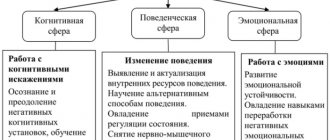Stress and its effect on the human body have been studied quite well by doctors and psychologists, since this problem is becoming commonplace nowadays. Every person can find themselves in a stressful situation, regardless of age, gender and social status. Stress is a protective mechanism against unusual physical and mental stress and strong emotions. Being in a non-standard situation that requires making an important decision, anxiety appears, the heartbeat quickens, weakness and dizziness occur. If the influence of stress on the human body has reached its peak, then complete moral and physical exhaustion occurs.
Causes of stress
The cause of overvoltage can be any factor, but experts divide them into two categories.
Firstly, these are changes in the usual course of life:
- increased stress at work;
- discord in personal life (intimate life);
- misunderstanding on the part of loved ones;
- acute shortage of money and others.
Secondly, these are internal problems that are generated through imagination:
- pessimistic attitude;
- low self-esteem;
- inflating demands not only on oneself, but also on others;
- internal struggle of the individual.
It is wrong to assume that only negative emotions are stress factors. Stress also affects human health from an excess of positive emotions, for example, a wedding or rapid career growth.
Having determined the cause of stress, it is necessary to eradicate it. If irritation is caused by the words or actions of a familiar person, then you should clearly formulate your complaints in advance and express them to the object of your dissatisfaction. If your last strength is consumed by professional activities, then it is better to find yourself a new place. Don’t be afraid to radically change your lifestyle and eliminate all negative aspects from it for the sake of your own peace of mind.
What will help you protect yourself from negative emotions?
Many diseases begin to progress due to disturbances in the nervous system. If a person feels that he cannot cope with psychological stress, then it is best to seek help from a specialist. He will prescribe a course of sedatives, the effect of which will appear within a few weeks. Almost all of them have a cumulative effect. When the level of adrenaline in the blood increases, sedatives help reduce the activity of the central nervous system and normalize the activity of the cerebral cortex. Regular exercise and contrast showers also help keep the body in good shape.
Stress can also have a positive effect on our body. For example, when a person works long and hard, pursuing a certain goal, and achieves it, then negative emotions become positive.
Stages of stress
Any living creature tries to adapt to environmental conditions. The Canadian scientist Selye proved in 1936 that with extremely strong exposure, the human body refuses to adapt. Thus, three stages of stress were identified, depending on a person’s hormonal background:
- Anxiety. This is the preparatory stage, during which a powerful release of hormones occurs. The body prepares for defense or flight.
- Resistance. The person becomes aggressive, irritable, and begins to fight the disease.
- Exhaustion. During the struggle, all reserve energy reserves were used up. The body loses its ability to resist, and psychosomatic disorders begin, including deep depression or death.
The result of prolonged exposure to irritating factors
The negative effects of stress do not appear immediately. The functioning of organ systems is gradually disrupted. Chronic fatigue has a detrimental effect on the entire body, provoking the occurrence of various diseases.
First of all, a stressful situation greatly affects the psyche. Nervous tension leads to conflict situations in society.
The negative effects of stress can result in suicidal tendencies.
Impact of stress on health
Stress directly affects the health of the human body. The work of internal organs and systems is suppressed, and a feeling of depression appears.
The influence of stress on human health has various manifestations, the main of which are:
- headaches that do not have a characteristic localization;
- chronic lack of sleep and insomnia;
- functional disorders of the cardiovascular system: bradycardia,
- arterial hypertension, myocardial infarction;
- impaired concentration, increased fatigue, decreased performance;
- gastrointestinal tract disorders: gastritis, ulcers, dyspepsia of neurotic origin;
- oncological problems are getting worse;
- decreased immunity, as a result of which the body may be susceptible to viral infection;
- disruption of neuroendocrine regulation, irregular production of hormones, leads to the development of osteoporosis, diabetes mellitus or other metabolic diseases;
- degeneration of brain tissue, muscle rigidity or atony; Alcohol or drug addiction may appear.
Mechanisms of development of atherosclerosis
Atherosclerosis is nothing more than a systemic pathology that causes the appearance of the vast majority of cardiovascular diseases, including ischemic heart disease. The appearance of atherosclerosis is accompanied by the formation of specific “plaques” inside the vessels. They can be single or multiple and represent lipid (cholesterol) lesions. Places of deposition of atherosclerotic plaques are the inner surface of large arterial vessels. As a result, their patency is impaired, and the walls change structure, which contributes to the appearance of a nonspecific inflammatory process. Sclerosis is a gradual proliferation of hard connective tissues followed by calcification. The arterial lumen becomes smaller and smaller, which interferes with normal blood flow and leads to ischemia.
There are several stages of development of the atherosclerotic process:
- lipid stain or streak. This is a pale yellow area containing lipids. It does not yet rise above the inner surface of the vessel;
- fibrous plaque. This is an oval or round lipid formation. It rises above the inner surface of the vessel. If the plaques are multiple, they can merge with each other, turning into tuberous formations;
- phenomena of calcification. Calcium salts are deposited in the plaque, as a result of which it becomes hard and contributes to the development of destructive processes inside the vessel;
- obvious destruction. The plaque ulcerates and hemorrhages are characteristic.
Also, in the last stages of atherosclerosis, overlays in the form of a thick thrombotic mass are observed.
The impact of stress on the psyche
A person’s mood directly depends on a person’s hormonal background. The anti-stress hormone is responsible for the correct psychological mood in the body. Cortisol helps you move towards your goal, gives you strength and motivation to take action. The level of the hormone in the blood varies depending on the emotional mood of a person and his plans for the near future.
If the body is in a stressful state, then psychologically it cannot adequately respond to the actions taking place around it. This manifests itself in inflated demands on oneself and the people around you. Calmness is lost, internal balance is disturbed, as a result of which apathy towards life appears.
Consequences of psycho-emotional disorders:
- depletion of mental strength leads to neuroses, depression and other mental illnesses;
- loss of interest in life, lack of any desires;
- disturbances in sleep and wakefulness patterns;
- emotional instability: attacks of aggression, outbursts of anger, irritability;
- internal feeling of anxiety.
Stress and heart disease
A stressful situation can contribute to the development of atherosclerotic processes, caused, among other things, by metabolic disorders. People who react violently to different situations in life experience strong hormonal surges - in particular, the release of adrenaline into the blood from the adrenal glands. It immediately increases blood pressure and speeds up the heart rate. If this happens systematically, the heart and blood vessels quickly wear out and systemic chronic diseases appear.
Of course, a prolonged stressful situation causes the appearance of other accompanying factors in a person’s life that negatively affect the functioning of the heart:
- overeating or, conversely, weight loss;
- smoking, drinking alcohol;
- physical inactivity;
- eating fatty and high-calorie foods, etc.
In addition to changes in hormonal levels, such behavioral responses to stress have a direct impact on the functioning of the heart.
Impact of stress on work
Monotonous monotonous work, constant emotional tone lead to the fact that performance begins to decline, and constant fatigue is felt.
Signs of overwork directly manifest themselves at work:
- regular erroneous actions;
- desire to sleep: yawning, eyes closing;
- lack of appetite;
- migraine, headache
- eye pain;
- wandering nature of thoughts, lack of concentration;
- unwillingness to continue working.
Fatigue tends to accumulate; if you do not help your body fight stress, your level of performance may decrease irrevocably.
Neurotic disorders associated with stress
In ICD-10 there is a whole group of diseases designated as neurotic disorders that have a direct connection with stress factors. For example, these include:
- anxiety disorders in the form of phobias;
- obsessive-compulsive disorders.
Phobias are a complex of nervous disorders in which the only or predominant symptom is the fear of specific things or situations. However, they do not pose any obvious or current danger to the patient. The patient's attention is focused on symptoms in the form of trembling, fear of dying or going crazy, losing control of himself. Constantly waiting for a phobic situation can be no less painful. In such cases, people are in constant anxiety, often accompanied or replaced by a depressive state. Obsessive-compulsive disorder is often characterized by obsessive thoughts or compulsive behaviors. As for obsessive thoughts, they are expressed in ideas and images that constantly “spin” in the patient’s head in the form of stereotypes. They are always gloomy and negative. Resisting them, a person often cannot cope with them, but despite this he considers them his own. People suffering from OCD are characterized by compulsive ritual behaviors that are repeated over and over again. With their help, they are trying to protect themselves from some event that is supposedly about to happen. The patient himself realizes the meaninglessness of his behavior, but cannot do anything about it. Of course, anxiety is the leading symptom of such a disorder, and if a person tries to resist his own compulsive actions, this leads to more severe forms of neuroses.
Restoring the body after stress
A distinctive feature of a morally strong person is resistance to negative influences. Total self-control is the best defense against stressful situations. You can hide from troubles, but for a normal state of mind you need to be able to deal with problems.
A set of calming and relaxing activities will help you recover from stress:
- Emotional release. You need to be in complete solitude, take a full lungful of air and scream as loud as your ligaments allow. The best place for this technique is nature. A relaxed atmosphere and fresh air will help you concentrate as much as possible on your inner state. A scream will help throw out all the accumulated negativity. For best effectiveness, it is recommended to shout any words at least three times.
- Correct breathing. Breathing exercises are absolutely irreplaceable if you feel anger, fear, excitement or another unusual feeling that begins to overwhelm you from the inside, preventing you from breathing. There are many variations of gymnastic exercises. To calm down, just take a minute to breathe in slowly through your nose and then slowly exhale through your mouth. Scientists have proven that normalizing the respiratory rhythm helps restore mental harmony. In combination with physical exercise, in addition to internal balance, you can also relax the muscles of the body.
- Physical exercise. Stress leaves serious consequences on a person's health, which can be overcome by moderate physical activity. Exercising not only sports (games, fitness), but also everyday chores that require a lot of energy (cleaning, washing, cooking) will help stabilize your psycho-emotional state. Active activity speeds up the body's metabolism, cleansing it of toxins and other waste products, improves physical fitness and helps take one's mind off troubles.
- Support from loved ones. The moral support of relatives gives strength to fight the depressing state. You can always speak out to them, trust them, revealing the most hidden parts of your soul. Warmth and love heals all emotional wounds.
- Russian bath. If you steam thoroughly, stress hormones will leave the body, normal health will return, and the physiological parameters of the body will improve. The bath helps with colds and rheumatism, and also calms the nerves and relieves stress. The combination of this procedure with aromatherapy and herbal infusions will enhance the effect.
- Art. The ability to express your feelings through art has a positive effect on the emotional sphere. Thanks to singing, drawing, dancing, a person expresses himself, which is a psychological release. Vocals and dance help normalize breathing and increase the tone of the body.
Cardiac ischemia
IHD occurs as a result of the development of atherosclerosis, as well as as a result of pathogenetic mechanisms, which are purely individual for everyone. When making a diagnosis and choosing the optimal treatment methods, coupled with the normalization of daily routine and nutrition, doctors should ask patients in detail about what bad habits they have and find out the risk factors that contributed to the development of cardiac pathology.
There are many risk factors for the development of coronary artery disease, but among them the main role is played by behavioral factors, including stress factors. We are talking about nutrition, physical activity and social self-determination of a person in a society that often becomes impossible without the struggle for existence. Lifestyle plays a key role in the development of IHD. In the background are other factors, including hereditary ones, which can also be corrected by encouraging the patient to change his lifestyle.
Positive effects of stress on the human body
If a shake-up of the body occurs for a short period of time, it can be beneficial:
- At the moment of strong stress, nerve cells are activated, so the brain begins to work at maximum. Working memory improves. On an exam, a student may talk about material that, in his opinion, he has never learned.
- The level of oxytocin, the hormone of tenderness and trust, increases. It helps eliminate conflict situations and establish trusting contacts.
- Reserve energy reserves are activated, strength and motivation appear to achieve your goals.
- Overcoming difficulties increases the body's endurance.
- The immune system is activated, biological indicators improve.
- All analyzers are sharpened, helping to concentrate on solving the problem.
Thus, stress and its effects on individuals vary. Emotional tone has a positive effect on the mental sphere, but control and increased activity are followed by depletion of vital resources. Nervous tension will go away on its own as soon as the cause of its occurrence disappears. It is very important to monitor your emotional and physiological state; if it is impossible to eliminate the irritating factor, contact a specialist.
Sleep as the basis for well-being
Adequate rest and healthy sleep are the first rules of a stable psyche. A well-rested person is more resistant to stress. The norm is considered to be 7-8 hours of sleep (and at least 9 hours if a person trains hard or works on his feet).
If there is not enough sleep, the stability of the nervous system decreases. You've probably observed how small children become capricious when they are tired and want to sleep. A similar condition is observed in adults who regularly do not get enough sleep - it becomes difficult for them to control their emotions, they feel irritation and aggression.
To improve the quality of your sleep, be sure to create a comfortable sleeping environment in your bedroom - darken the room, ventilate it before bed, and try to make the room quiet. Maintain a sleep schedule - try to go to bed and wake up at approximately the same time every day and not deviate too much from this schedule, even on weekends. If these measures do not help, contact a neurologist or somnologist. Your doctor will help you improve your sleep and quality of night's rest.
What are stressors?
Any event, situation, fact or message, regardless of its positive or negative nature, can cause stress. Those phenomena and factors that cause it are called stressors. They come in several types:
Life situations can be ordinary (ordinary) and difficult. And difficult situations can be stressful, but not all difficult situations are. What kind of situations are called stressful:
- situations of loss - a traumatic situation that is associated with the loss of something or someone (separation from a partner, death of a loved one, loss of a job or property);
- Threat situations are situations associated with the activation of adaptive capabilities, in which a person has to make great coping efforts (various types of behavior and emotional reactions that help cope with stress);
- challenge situations – require the individual to take potentially risky and difficult reactions in order to adapt.
Also, stressful situations can be associated either with personal or social (professional) conflicts.
Impact on mental state
Since school, each of us knows that the psyche is an integral part of health. Therefore, a stressful situation, when it occurs, has a direct impact on a person’s mental balance. And in order to correctly understand whether you are susceptible to harmful influences, you need to clearly know how exactly stress affects the psyche.
To date, experts have identified the following mental consequences of stress:
- The development of depression, neuroses and other disorders that are mental in nature.
- People lose interest in life and lack desires.
- The sleep and wakefulness patterns are disrupted.
- The person has emotional instability.
- The appearance of an internal feeling of anxiety that is very persistent.
This is exactly how hormonal disruption, provoked by exposure to stressful situations, affects a person and his mental balance.
Imbalance leads to various disorders, resulting in inappropriate behavior and feelings of apathy.











